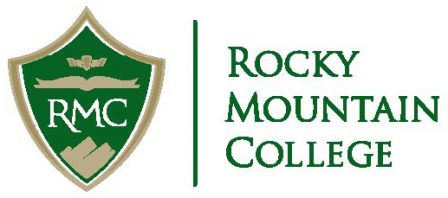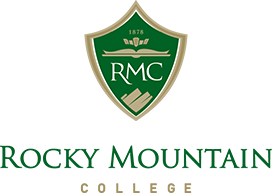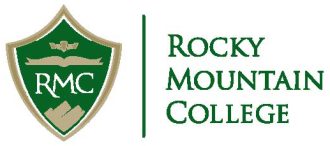Educational Leadership
April 15, 2023 2024-05-20 22:14The master’s in educational leadership program at Rocky Mountain College is designed to prepare educational leaders for careers as principals or superintendents. This cohort-based program incorporates state and national standards for educational leadership and is based on Effective Schools Research. Blending theory and practice through coursework and intensive internship, candidates will be prepared to be instructional leaders at the P-12 level.
The principal-preparation program is 34 semester hours in length depending on previous coursework and has a minimal residence requirement. Graduates of this program will meet the education requirement for licensure as a principal in the state of Montana. Separate courses are also available for the superintendent endorsement. Candidates should check with the Montana Office of Public Instruction for other licensure requirements.
For additional program information, see www.rocky.edu/mel.
Learning Outcomes
- PSEL Standard #1: Effective educational leaders develop, advocate, and enact a shared mission, vision, and core values of high-quality education and academic success and well-being of each student.
- PSEL Standard #2: Effective educational leaders act ethically and according to professional norms to promote each student’s academic success and well-being.
- PSEL Standard #3: Effective educational leaders strive for equity of educational opportunity and culturally responsive practices to promote each student’s academic success.
- PSEL Standard #4: Effective educational leaders develop and support intellectually rigorous and coherent systems of curriculum, instruction, and assessment to promote each student’s academic success and well-being of each student.
- PSEL Standard #5: Effective educational leaders cultivate an inclusive, caring, and supporting school community that promotes the academic success and well-being of each student.
- PSEL Standard #6: Effective educational leaders develop the professional capacity and practice of school personnel to promote each student’s academic success and well-being.
- PSEL Standard #7: Effective educational leaders foster a professional community of teachers and other professional staff to promote each student’s academic success and well-being. Note: All candidates in this program will complete a minimum of 216 hours of internship with a licensed mentor in an accredited educational setting. In addition, students will participate in an reflective seminar regarding their internship experience. Logs and demonstrative outcomes will be a measurable component and will meet this Standard and will meet this PEPPS and PSEL standard.
- PSEL Standard #8: Effective educational leaders engage families and the community in meaningful, reciprocal, and mutually beneficial ways to promote each student’s academic success and well-being.
- PSEL Standard #9: Effective educational leaders manage school operations and resources to promote each student’s academic success and well-being.
- PSEL Standard #10: Effective educational leaders act as agents of continuous improvement to promote each student’s academic success and well-being.
Principal Preparation Courses
The following courses are required:
EDL 500: Foundations of Leadership
EDL 505: Dimensions of Leadership I
EDL 510: Dimensions of Leadership II
EDL 520: Supervision of Educational Personnel
EDL 530: Montana School Law
EDL 554: Montana School Finance
EDL 560: Organizational Change
EDL 570: School Curriculum
EDL 575: Public School and Community Relationships
EDL 590: Leadership Seminar I and II
EDL 591E: Internship in the Elementary School
EDL 591S: Internship in the Secondary School
EDL 683: Educational Leadership Capstone
Superintendent Preparation Courses
Administrators who have served as a licensed principal for one year and who complete 12–18 semester hours beyond the master’s degree in areas determined by the Montana Office of Public Instruction are eligible for a Class 3 Administrative License as a superintendent. A review of the student’s transcript will result in a specific plan of study. EDL 691 and EDL 693 are required courses for all students.
The following courses for the superintendent endorsement are offered on demand:
EDL 562: District Superintendent Challenges: Boardrooms and Courtrooms
EDL 565: Getting District Results: The Role of the Superintendent
EDL 576: Superintendent as CEO
EDL 690: Superintendent Seminar
EDL 691: Superintendent Practicum (required of all students)
EDL 693: Education Personnel and Collective Bargaining in Montana (required of all students)
EDL 554: Montana School Finance
EDL 530: Montana School Law
Candidates should check with the Montana Office of Public Instruction for other endorsement requirements.
EDL 500 – Foundations of Leadership
Semester: Fall
Semester hours: 2
The focus of this course is on public school education – past, present, and future. Course content will include exploration of the roles of federal, state, and local governance systems as they pertain to leadership roles in public education. In addition, participants will be exploring the school culture, climate, and dynamics from the perspective of a school as a social organization. This experiential course invites class participation, team building and group activities, role-playing, guest lecturers, and group dynamics.
EDL 505 – Dimensions of Leadership I
Semester: Fall
Semester hours: 3
The focus of this course is on the roles and responsibilities of P-12 school administrators including leadership styles and behaviors. Additionally, the influence leadership has on the overall operation of a school building will be explored. Participants will discuss such topics as defining school climate and culture, sustaining partnerships and building collegial teams, and sharing leadership.
EDL 510 – Dimensions of Leadership II
Semester: Spring
Semester hours: 3
The focus of this course is to build on the knowledge and understanding of how leadership influences instruction and teacher practice. Participants will explore the leadership skills required to nurture instructional improvement in schools.
EDL 520 – Supervision of Educational Personnel
Semester: Spring
Semester hours: 3
The focus of this course is on improving, coordinating, and evaluating modern trends of supervisory practice. Students will evaluate and develop instruments for use in the formative and summative evaluation of teaching, as well as for support roles within the school environment. Participants will explore best practice instructional models from which to base the evaluation instrument or process. Participants will become familiar with the evaluation process as it pertains to marginal staff. Students will be required to recommend specific staff development options aligned to improvement of instruction.
EDL 530 – Montana School Law
Semester: Spring
Semester hours: 3
This course will study the legal framework of public education (Constitutional law, case law, and Montana law) with emphases on Montana and national legislation and case law pertaining to public education and the rights of board members, administrators, students, and parents.
EDL 554 – Montana School Finance
Semester: Spring
Semester hours: 3
This course will focus on the development of educational budgets within the confines of available revenue. Taxation, policy analysis, applicable case law, and reporting will be covered.
EDL 560 – Organizational Change
Semester: Fall
Semester hours: 3
The focus of this course is on topics such as the theory of management, communication, human relations, social systems, motivation, decision making, and change. A particular focus in this course is on the role of the building administrator in improving student achievement in a school reform effort. Practical application of analyzing school data followed by program intervention will be explored. Participants will explore how today’s leaders must create and nurture a culture of collaboration, collegiality, and continuous improvement.
EDL 562 – The School Superintendent Challenges – Boardrooms and Courtrooms
Semester: Offered at discretion of department
Semester hours: 3
Members of the superintendent cohort will apply course content to the actual superintendent internship experience. The overall purpose of the course is to reflect on and demonstrate competency pertaining to the national AASA standards as it relates to school board governance and legal issues. Students will explore the role of the superintendent as it relates to board relations, creating district policy, and legal issues ranging from personnel issues.
Prerequisite: Students must have earned a master’s degree in educational leadership or education.
EDL 565 – Getting District Results: The Role of the Superintendent
Semester: Offered at discretion of department
Semester hours: 3
Members of the superintendent cohort will apply course content to the actual superintendent internship experience. The overall purpose of the course is to reflect on and demonstrate competency pertaining to the national AASA standards as it relates to leading an organizational change and increasing overall student achievement. Particular focus will be on the clarification of essential learning assessments such as common, formative assessments. Additionally, focus will be on how superintendents prioritize establishing a systematic intervention and enrichment delivery throughout daily instruction. Finally, the importance of the superintendent’s roles and responsibilities sustaining the change initiative will be identified.
Prerequisite: Students must have earned a master’s degree in educational leadership or education.
EDL 570 – School Curriculum
Semester: Fall
Semester hours: 3
The focus of this course is on the role of leadership in curriculum planning and development with topics including educational and cultural foundations; curricular outcomes; P-12 alignment; standards and community values; developing, managing, and evaluating curriculum; multicultural education; equal access; differentiated instruction; academic freedom; technology; scheduling; censorship; and curriculum associated with various student populations.
EDL 575 – Public School and Community Relationships
Semester: Fall
Semester hours: 3
This course will focus on the interdependence of school and community; identifying and defining societal expectations of schools and the effects of those expectations on educational policy; and the impact of social, political, economic, and demographic changes on public school policy.
EDL 576 – The Superintendent as CEO
Semester: Offered at discretion of department
Semester hours: 3
Members of the superintendent cohort will apply course content to the actual superintendent internship experience. The overall purpose of the course is to reflect on and demonstrate competency pertaining to the national AASA standards (i.e., leadership and school culture; policy and governance; communications and community relations; organizational management; curriculum planning and development; instructional management; human resources management; and values and ethics of leadership).
Prerequisite: Students must have earned a master’s degree in educational leadership or education.
EDL 590E – Leadership Seminar (Elementary)
Semester: Fall
Semester hours: 1
The focus of this course will be reflection and inquiry regarding the administrative practicum. Problem solving and best practices will be a component of this course. Discussions will revolve around the PSEL and PEPP standards. Initial development of the administrative portfolio will be completed during this course.
Corequisite: EDL 591
EDL 590S – Leadership Seminar (Secondary)
Semester: Spring
Semester hours: 1
The focus of this course will be reflection and inquiry regarding the administrative practicum. Problem solving and best practices will be a component of this course. Discussions will revolve around the PSEL and PEPP standards. Initial development of the administrative portfolio will be completed during this course.
Corequisite: EDL 591
EDL 591E – Practicum for Elementary School
Semester: Fall
Semester hours: 2
A directed internship experience designed to relate theories and concepts explored in coursework to educational settings is the primary focus of the field experience. Practical application of theories will be implemented in fieldwork.
Corequisite: EDL 590
EDL 591S – Practicum for Secondary School
Semester: Fall and Spring
Semester hours: 2
A directed internship experience designed to relate theories and concepts explored in coursework to educational settings is the primary focus of the field experience. Practical application of theories will be implemented in fieldwork.
Prerequisite: EDL 590
EDL 683 – Educational Leadership Capstone
Semester: Spring
Semester hours: 2
This course will be the culminating experience for students in the educational leadership program. A comprehensive review of material covered, as well as an exit interview, will be components of this experience. Theories and principles of advanced leadership practiced in educational settings will be explored within the context of the overall program.
EDL 690 – Superintendent Seminar
Semester: Spring
Semester hours: 1
This course will focus on problem solving and best practices in the administrative practicum. Practical application of theories will be implemented in fieldwork. Discussions will revolve around the PSEL and PEPPS standards.
Corequisite: EDL 691
EDL 691 – Superintendent Practicum
Semester: Spring
Semester hours: 2
A directed internship experience designed to relate theories and concepts explored in coursework to educational settings are the primary focus of the field experience. Practical application of theories will be implemented in fieldwork.
Corequisite: EDL 690
EDL 693 – Education Personnel and Collective Bargaining in Montana
Semester: Offered at discretion of department
Semester hours: 3
This course prepares district level educational leaders to demonstrate competency in facilitating and implementing policies and procedures which effectively recruit, train, supervise and evaluate educational personnel including certified and classified employees; demonstrate competency in developing and implementing policies and procedures which create and monitor professional growth plans; demonstrate competency and overall knowledge related to the district level negotiation process resulting in union agreements through collective bargaining and create and implement policies for successful educational programming and delivery.
Prerequisite: principal’s license
- Stevie Schmitz, Director of Educational Leadership
Contact
Office of Student Records
Rocky Mountain College
Prescott Hall
1511 Poly Drive
Billings, MT 59102


